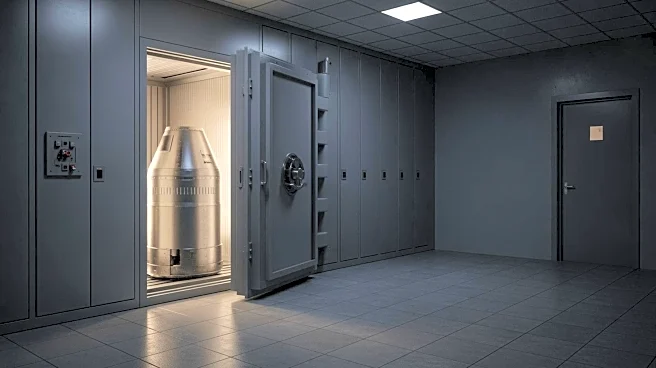What's Happening?
The National Nuclear Security Administration (NNSA), responsible for overseeing the United States' nuclear stockpile, is set to furlough approximately 1,400 employees due to the ongoing government shutdown.
This marks the first time since its establishment in 2000 that the NNSA has had to furlough workers. The shutdown, now in its 20th day, stems from a budget impasse between Republicans and Democrats, with the latter pushing for increased healthcare funding as part of the negotiations. The NNSA, a semi-autonomous agency within the Department of Energy, will retain fewer than 400 employees during this period. The Office of Secure Transportation, which handles the transport of nuclear weapons, has funding to operate until October 27. Energy Secretary Chris Wright is expected to address the situation in an upcoming news conference.
Why It's Important?
The furlough of NNSA employees poses significant risks to national security, as the agency plays a crucial role in safeguarding the U.S. nuclear arsenal and preventing nuclear proliferation. The reduction in workforce could hinder efforts to modernize aging nuclear weapons, potentially impacting the country's defense capabilities. The broader government shutdown has already affected around 1.4 million federal employees, either on unpaid leave or working without pay, highlighting the widespread impact of the budget deadlock. The situation underscores the critical need for a resolution to ensure the continued operation of essential government functions and the security of the nation's nuclear assets.
What's Next?
The U.S. Senate is expected to vote on a funding measure already passed by the House of Representatives, although similar attempts have failed ten times previously. Republican Senate Majority Leader John Thune plans to introduce a bill to ensure payment for federal employees and military personnel working without pay during the shutdown. The outcome of these legislative efforts will determine the duration of the shutdown and the potential for further disruptions to government operations.








